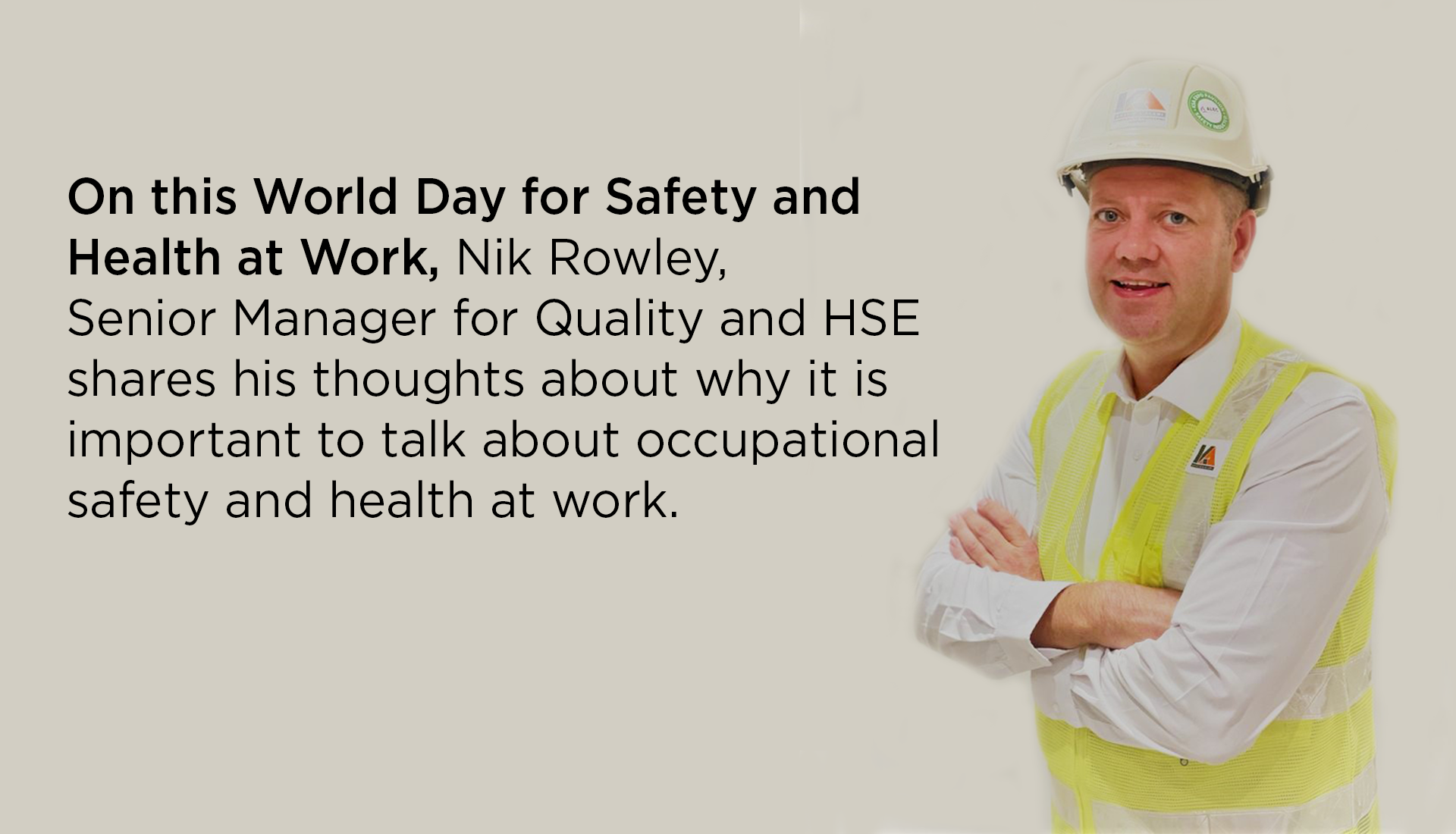|
Today (28 April) is 2021 World Day for Safety and Health at Work, so we took the opportunity to ask Nik Rowley, senior manager for quality and HSE, why dialogue about occupational safety and health is important.
Why is it important to celebrate occasions such as the World Day for Safety and Health at Work?
It’s incredibly important to highlight key issues on health and safety in the workplace so that we can drive constant improvement. Ultimately we want to create a positive safety culture, where it becomes second nature for our people to put health and safety first, to be aware of risks and to call out any unsafe practices. The COVID-19 pandemic has demonstrated this and whilst it’s been challenging at times, one of the biggest positive outcomes is that it has also significantly increased awareness of occupational and public health, which should be celebrated. At Khatib & Alami, we always try to take every opportunity to showcase best practice and reinforce the importance of constantly maintaining the right behaviors to health and safety for our employees and stakeholders. Equally important is that the ILO encourages global UN members to participate and collaborate with this year’s World Day for Safety and Health at Work 2021 in relation to COVID-19.
What are the main changes you have seen in attitudes to occupational health and safety in the last few years?
General awareness of occupational health has seen exponential growth during the COVID-19 pandemic in that everyone has an opinion, concern or suggestion to improve, which in my opinion is excellent. Equally, I think we’ve seen huge improvements in the Middle East construction environment in the last year. Within our own projects, you only need to look at the level of pride people feel whenever we reach a new health and safety milestone. From a client perspective, there’s also an understanding that health and safety goes hand-in-hand with quality, consistency and meeting timescales. But we need to be constantly looking at how we can make improvements, and remember that there’s never room for complacency.
What do you think were the main learnings of the last 12 months, in the context of COVID-19?
The most important lesson was on the importance of being prepared and having robust crisis measures in place. It was also valuable for understanding how people respond to crisis events – the resilience and determination among our teams, and also among client and partner teams, was fantastic and you really witnessed the best in human nature. People clearly understand far more about the risks of communicable disease, the importance of compliance with restrictions and health protection measures and vaccination programs. We also learnt the importance of finding alternative methods to do our job, having less face-to-face contact, protecting each other, safe remote working, implementing robust COVID-19 track & trace processes, rapid decision making, enhanced sickness absence management, creating awareness of COVID-19 and the potential mental health risks, and the need for effective communication of COVID-19 information such as legal requirements, guidelines and updates. .
What are the most important ways in which we can improve occupational health and safety going forward?
Given the experiences we’ve all had this last 12 months, it’s important we all enhance our occupational health and safety systems to incorporate the tools and lessons learned throughout the COVID-19 pandemic, so that we can all be far more prepared and resilient. The need for occupational health processes, emergency preparedness, business continuity, digitalization and effective horizon scanning is paramount.
|
